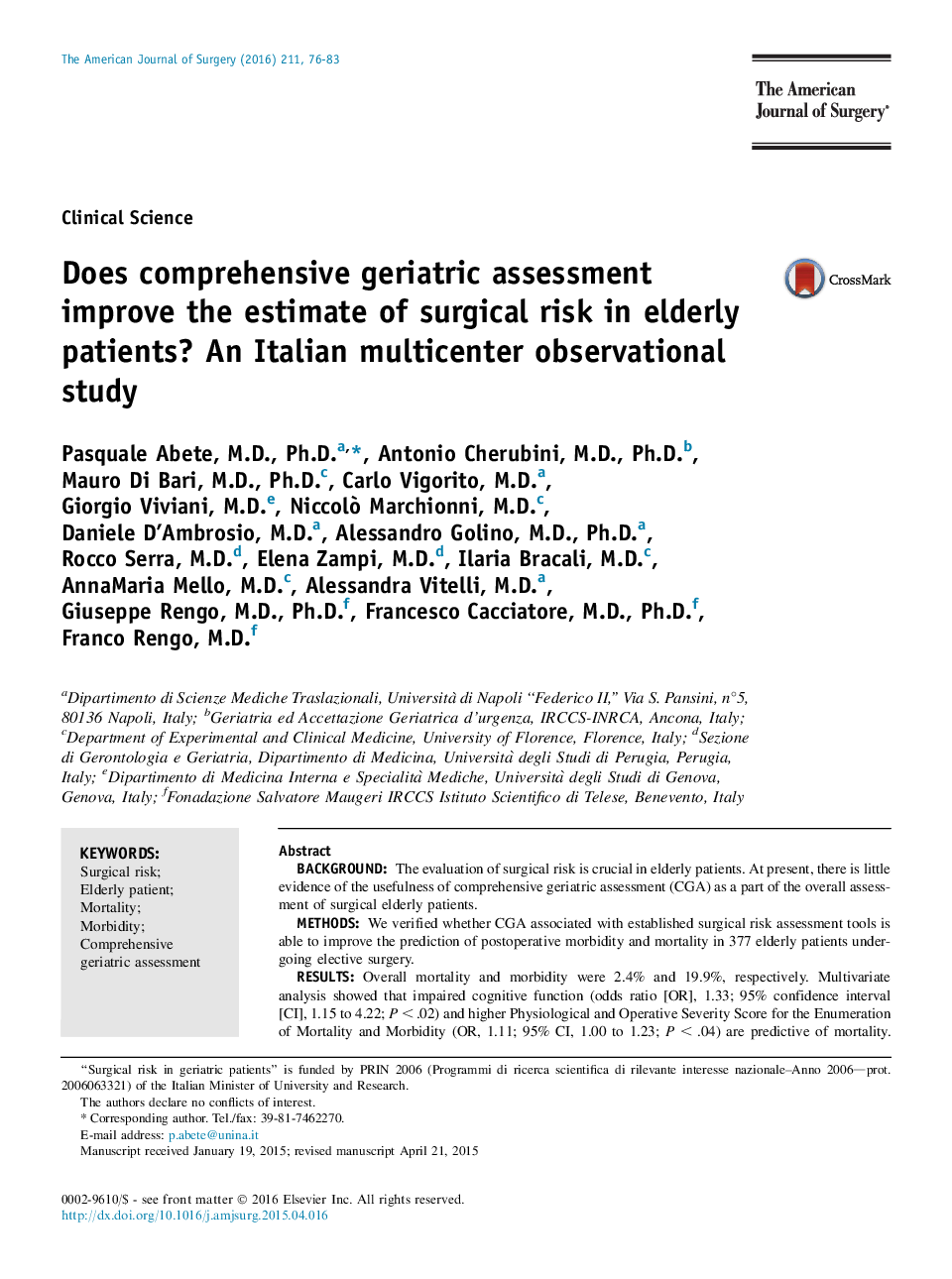| کد مقاله | کد نشریه | سال انتشار | مقاله انگلیسی | نسخه تمام متن |
|---|---|---|---|---|
| 6250430 | 1611487 | 2016 | 10 صفحه PDF | دانلود رایگان |
- The evaluation of surgical risk is particularly important in older patients, who have a higher risk of adverse events during and after surgery.
- Comprehensive geriatric assessment is considered as a part of the overall assessment of surgical older patients.
- Comprehensive geriatric assessment improves the identification of older patients at higher risk of adverse events, independent of the most used surgical prognostic indices.
BackgroundThe evaluation of surgical risk is crucial in elderly patients. At present, there is little evidence of the usefulness of comprehensive geriatric assessment (CGA) as a part of the overall assessment of surgical elderly patients.MethodsWe verified whether CGA associated with established surgical risk assessment tools is able to improve the prediction of postoperative morbidity and mortality in 377 elderly patients undergoing elective surgery.ResultsOverall mortality and morbidity were 2.4% and 19.9%, respectively. Multivariate analysis showed that impaired cognitive function (odds ratio [OR], 1.33; 95% confidence interval [CI], 1.15 to 4.22; P < .02) and higher Physiological and Operative Severity Score for the Enumeration of Mortality and Morbidity (OR, 1.11; 95% CI, 1.00 to 1.23; P < .04) are predictive of mortality. Higher comorbidity is predictive of morbidity (OR, 2.12; 95% CI, 1.06 to 4.22; P < .03) and higher American Society of Anesthesiologists (OR, 2.18; 95% CI, 1.31 to 3.63; P < .001) and National Confidential Enquiry into Patient Outcome of Death score (OR, 2.03; 95% CI, 1.03 to 4.00; P < .04).ConclusionsIn elective surgical elderly patients, the morbidity and mortality are low. The use of CGA improves the identification of elderly patients at higher risk of adverse events, independent of the surgical prognostic indices.
Journal: The American Journal of Surgery - Volume 211, Issue 1, January 2016, Pages 76-83.e2
